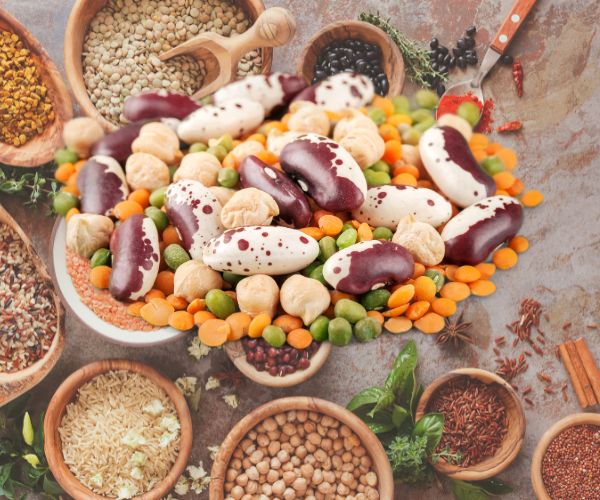Can a human survive off beans instead of meat?
When it comes to protein, meat has long been considered the go-to source. However, emerging research sheds light on the remarkable power of beans and grains in providing what is known as complete proteins. This article delves into the fascinating world of plant-based proteins, specifically beans and grains, and their ability to offer a viable alternative to meat. We will explore the concept of complete proteins, the importance of nutrient diversity, and how to create a balanced diet that thrives on the goodness of beans and other complementary foods.

Understanding Complete Proteins:
Beans and grains, when consumed together as part of a complete diet, offer a unique combination of amino acids that provide all the essential building blocks required for protein synthesis in our bodies. While beans alone may not provide adequate protein levels, their amino acid profile complements that of grains, creating a complete protein source. This means that by combining beans and grains in our meals, we can meet our protein needs without relying on meat.
The Role of Nutrient Diversity:
While beans and grains offer complete proteins, it’s important to note that they may not provide sufficient levels of certain micronutrients commonly found in meat, such as iron and vitamin B12. Therefore, a well-rounded plant-based diet must incorporate a variety of other foods to fill in the nutritional gaps left by the absence of meat. Including sources rich in iron, such as dark leafy greens or fortified cereals, and considering vitamin B12 supplementation or fortified foods can help ensure optimal nutrient intake.
Creating a Balanced Plant-Based Diet:
To successfully thrive on a diet that includes beans but not meat, it is crucial to embrace the concept of nutrient diversity. Incorporating a wide array of plant-based foods, including fruits, vegetables, legumes, nuts, seeds, and whole grains, can provide the necessary vitamins, minerals, and antioxidants essential for overall health. Experimenting with different recipes, exploring global cuisines, and seeking inspiration from plant-based cookbooks can make the journey enjoyable and exciting.
Exploring Nutrient-Rich Alternatives:
Apart from beans and grains, there are numerous nutrient-rich alternatives that can enhance the nutritional profile of a plant-based diet. Leafy greens like spinach and kale offer iron and other essential minerals, while nuts and seeds provide healthy fats and protein. Fortified plant-based milk, nutritional yeast, and algae-based supplements can serve as sources of vitamin B12. By incorporating these diverse foods into our meals, we can ensure a well-rounded and nutritionally balanced diet.
Conclusion:
In conclusion, while beans and grains offer an incredible source of complete proteins, it is important to acknowledge the need for nutrient diversity in a plant-based diet. While it is entirely possible to thrive without consuming meat and rely on beans, a comprehensive approach to nutrition is key. By incorporating a variety of plant-based foods and exploring alternatives for essential nutrients found in meat, we can create a balanced and fulfilling diet that supports our health and well-being.
Remember, embracing a plant-based lifestyle is not about restriction but rather about exploring the abundance of nutritious options available to us. With a bit of creativity and an open mind, we can enjoy the benefits of beans, grains, and other plant-based foods while nourishing our bodies and caring for the planet.

